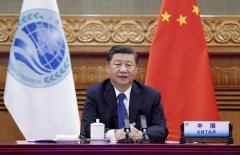UK variant hunters lead global race to stay ahead of COVID
Even when the U.K. had just a few dozen confirmed cases of COVID-19, professor Sharon Peacock recognized that the country needed to expand its capacity to analyze the genetic makeup of the virus
March 28, 2021, 2:46 PM
6 min read
Share to FacebookShare to TwitterEmail this articleA lab assistant uses a pipette to prepare Coronavirus RNA for sequencing at the Wellcome Sanger Institute that is operated by Genome Research in Cambridge, Thursday, March 4, 2021. Cambridge University microbiologist Sharon Peacock understood that genomic sequencing would be crucial in tracking the coronavirus, controlling outbreaks and developing vaccines, so she began working with colleagues around the country to put together a plan when there were just 84 confirmed cases in the country. The initiative helped make Britain a world leader in rapidly analyzing the genetic material from large numbers of COVID-19 infections, generating more than 40% of the genomic sequences identified to date.(AP Photo/Frank Augstein)
LONDON -- On March 4, 2020, when there were just 84 confirmed cases of COVID-19 in the U.K., professor Sharon Peacock recognized that the country needed to expand its capacity to analyze the genetic makeup of the virus.
The Cambridge University microbiologist understood that genomic sequencing would be crucial in tracking the disease, controlling outbreaks and developing vaccines. So she began working with colleagues around the country to put together a plan. Within a month, the government had provided 20 million pounds ($28 million) to fund their work.
The initiative helped make Britain a world leader in rapidly analyzing the genetic material from large numbers of COVID-19 infections, generating more than 40% of the genomic sequences identified to date. These days, their top priority is finding new variants that are more dangerous or resistant to vaccines, information that is critical to helping researchers modify the vaccines or develop new ones to combat the ever-changing virus.
“They've shown the world how you do this,” said Dr. Eric Topol, chair of innovative medicine at Scripps Research in San Diego, California.
Genomic sequencing is essentially the process of mapping the unique genetic makeup of individual organisms — in this case the virus that causes COVID-19. While the technique is used by researchers to study everything from cancer to outbreaks of food poisoning and the flu virus, this is the first time authorities are using it to provide real-time surveillance of a global pandemic.
Peacock, 62, heads Britain’s sequencing effort as executive director and chair of the COVID-19 UK Genomics Consortium, known as COG-UK, the group she helped create a year ago.
During the first week of this month, COG-UK sequenced 13,171 viruses, up from 260 during its first 12 days of operation in March last year.
Behind that growth is a system that links the science of genomic sequencing with the resources of Britain's national health care system.
Positive COVID-19 tests from hospitals and community testing programs around the country are sent to a network of 17 laboratories, where scientists extract the genetic material from each swab and analyze it to identify that virus’ unique genetic code. The sequences are then cross-referenced with public health data to better understand how, where and why COVID-19 is spreading.
When mutations in the virus correspond with an otherwise unexplained increase in cases, that’s a clue that a new variant of concern is circulating.
The importance of genomic sequencing became obvious late last year as the number of new infections began to spike in southeastern England. When cases continued to rise despite tough local restrictions, public health officials went to work to find out why.
Combing through data from genome sequencing, scientists identified a new variant that included a number of mutations that made it easier for the virus to hop from one person to another. Armed with this information, Prime Minister Boris Johnson imposed a national lockdown, scrapping a strategy of local restrictions that had failed to contain the new variant.







